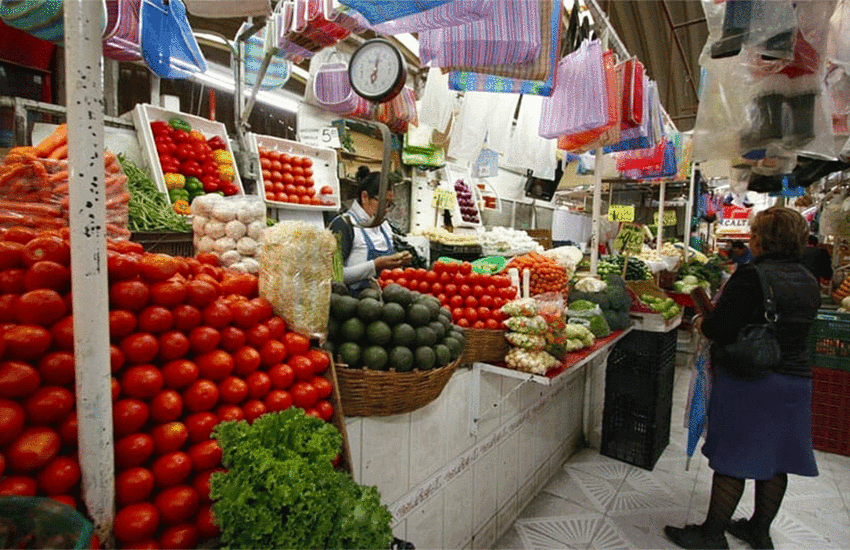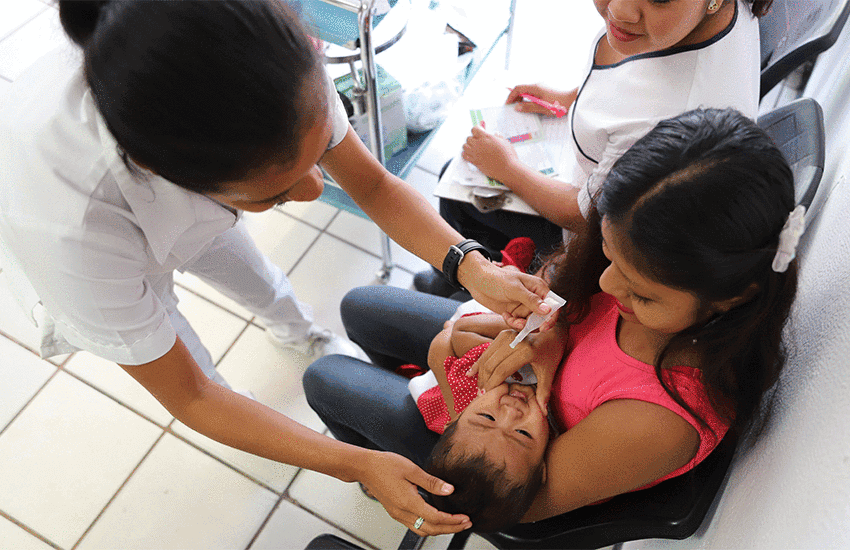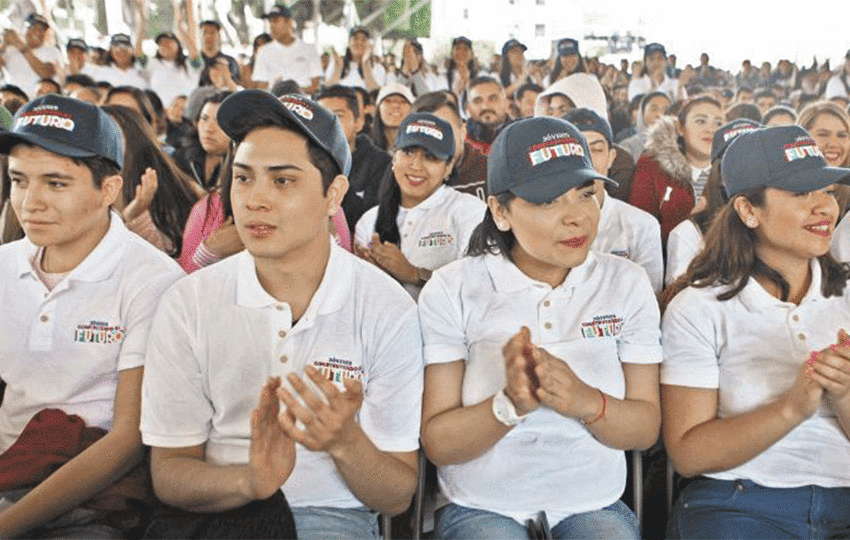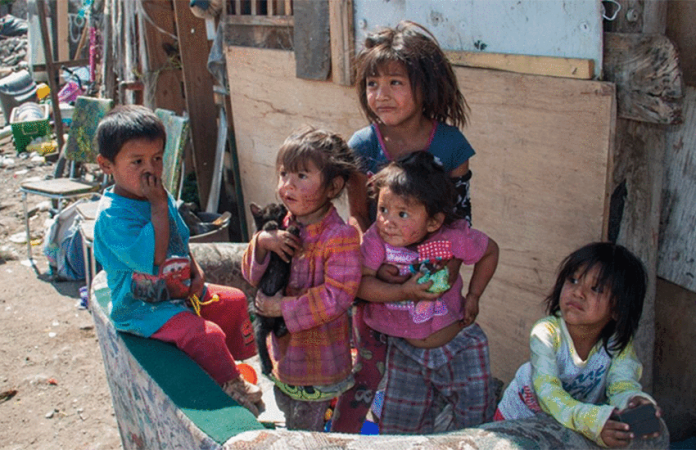Two weeks after official data showed that there are an additional 3.8 million Mexicans living in poverty, a non-governmental organization has criticized the federal government’s central strategy to combat the problem.
President López Obrador’s government of almost three years has implemented a range of programs designed to alleviate poverty, including a tree-planting employment scheme and a youth apprenticeship scheme. It has also raised seniors’ pensions as part of its efforts to reduce high levels of poverty nationwide.
But figures compiled by Coneval, the federal agency that measures social development, show that the number of people it classified as poor rose to 55.7 million people, or 43.9% of the population, in 2020, up from 41.9% in 2018.
Acción Ciudadana Frente a la Pobreza (Citizen Action Against Poverty), an NGO, believes that the much-lauded social programs are not functioning as well as the government says they are and that a new approach to combatting poverty is needed.
“The remedy is not social programs that minimally alleviate poverty but don’t combat its causes,” the organization said in a statement.

“Miracles can’t be expected of these programs,” Acción Ciudadana Frente a la Pobreza (ACFP) said, adding that a comprehensive, multi-year plan is needed.
The plan, it added, should be based on a formula of “dignified work with labor rights and sufficient remuneration” and a system of universal social protection that is not reliant on one’s work situation. The first priority of such a system is universal healthcare, ACFP said.
For many Mexicans, low incomes and the lack of access to social security are the major drivers of poverty, said the organization’s chief, Rogelio Gómez Hermosillo.
“It’s time to stop thinking about the matter and grab the bull by the horns and go to the root of poverty,” he said.
Along with two other ACFP officials, he presented a “Mexico without poverty” formula at a virtual press conference on Wednesday.
It consists of 10 immediate actions aimed at improving people’s incomes, making progress toward greater respect for labor rights and building a universal social protection system.

To improve incomes, the ACFP proposed four immediate actions:
- The approval of a multi-year plan by the National Minimum Wage Commission aimed at a gradual increase of the minimum wage (currently 142 pesos, or about US $7 per day) so that it covers the cost of two canastas básicas, or basic food baskets, in urban areas by 2024 at the latest. At current prices, the minimum salary would have to increase to about 7,500 pesos (US $370) per month.
- Legislation for the establishment of employee profit-sharing schemes that function as productivity bonuses.
- The establishment of a social economic policy that allows cooperatives and collectively-owned social sector companies to attract investment and access development bank loans at preferential interest rates in order to help them grow.
- Adjustment of the Youths Building the Future apprenticeship scheme so that it supports greater numbers of Mexico’s most disadvantaged young people.
To make progress toward greater respect for labor rights, the ACPF proposed three immediate actions:
- Acceleration of the implementation of the 2019 labor reform, especially with regard to the functioning of the new labor justice system, the legitimization of collective contracts and the democratic election of union leaders.
- Strengthening of the Labor Ministry’s inspection and sanctioning capacity in order to combat business models based on the violation of labor rights.
- Compliance with the labor rules outlined in the three-way free trade pact known as the United States-Mexico-Canada Agreement, as well as those stipulated by international organizations.
To begin the construction of a universal social protection system, three immediate actions were recommended:
- The allocation of adequate public funds to provide free healthcare to all Mexicans. (In an executive summary to its 2020 poverty report released earlier this month, Coneval described as urgent the need for the healthcare system to transition fully to the Insabi health care service, introduced by the current federal government to replace Seguro Popular, and guarantee healthcare attention to the public.)
- Approval of a constitutional reform to establish a national childcare system, and allocation of sufficient funds to create 100,000 additional places in daycare centers.
- Payments to people who have lost their source of income due to emergency situations such as the ongoing coronavirus pandemic. (Coneval said the pandemic was mainly responsible for the rise in the number of Mexicans living in situations of poverty.)

Mexico is the 15th biggest economy in the world in terms of GDP, but the distribution of wealth among citizens is notoriously unequal. The López Obrador administration has made helping the nation’s poor a priority but has offered virtually no additional financial support to citizens regardless of their wealth during the pandemic, which last year precipitated Mexico’s worst economic slump since the Great Depression.
The president earlier this month rejected the Coneval data that showed that almost 4 million additional Mexicans had fallen into poverty on his watch and asserted that most sectors of the economy are recovering from the pandemic-induced recession.
“… I have, for example, my own method of measurement … I see the macroeconomic data,” López Obrador told reporters at his morning press conference on August 6.
“I have other information and I believe the people are receiving more support, and even with the pandemic, people have enough for their basic needs, and something very important, they have not lost faith and we’re moving ahead.”
Mexico News Daily
